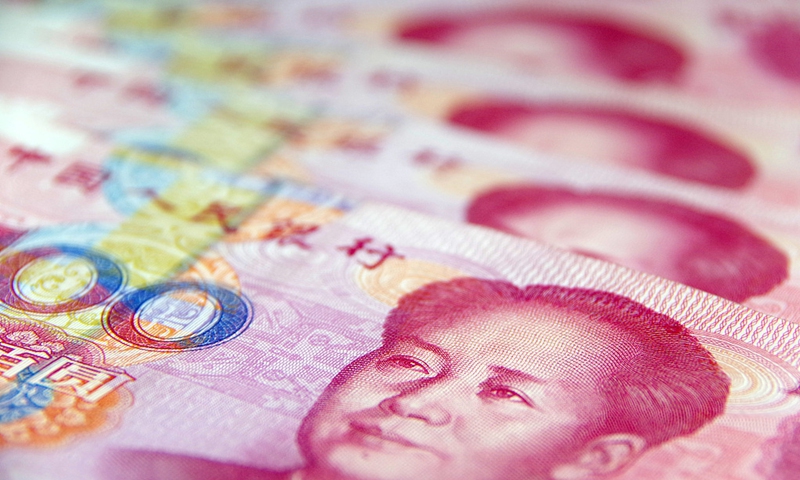
Chinese yuan Photo:VCG
The Shanghai branch of the People's Bank of China (PBC), China's central bank, has launched a pilot project in the China (Shanghai) Pilot Free Trade Zone (FTZ) to allow firms to combine yuan and overseas currencies accounts into one, according to media reports on Monday.
It's the latest example of domestic cities carrying out such reforms in what experts said would be beneficial for enhancing account management efficiency and attracting overseas capital.
A total of 242 business outlets from five financial institutions, including the Bank of China and the Industrial and Commercial Bank of China, in the FTZ have participated in the project, according to Shanghai-based news portal Shanghai Observer.
With the reform, companies in the Shanghai FTZ no longer need to set up different accounts for receiving or paying different currencies. The project is based on the yuan unit bank settlement account system and supports the settlement of multiple currencies, both local and overseas ones.
Officials will strengthen the supervision and monitoring of local and foreign currency bank settlement accounts and implement coordinated supervision of those accounts.
Dong Dengxin, director of the Finance and Securities Institute of the Wuhan University of Science and Technology, said that overseas and yuan currency accounts were strictly separated in the past for fear of risks such as foreign currency shortages and capital outflows, but these are no longer problems in China.
"As the trend of de-dollarization rises and demand for settlement in the yuan increases further, placing yuan and overseas currencies under one account could help increase the efficiency of account management, settlement and payment, as well as reduce settlement/exchange costs," Dong told the Global Times on Monday.
Dong noted that the reform gives companies more freedom to manage currencies and thus is beneficial for bringing in overseas capital.
Media reports showed that other cities have also launched similar projects prior to Shanghai. Recently, three cities in South China's Hainan Province officially started a pilot project, the Hainan Daily noted. Similar reform also landed in Qingdao of East China's Shandong Province recently, a statement from the PBC said.


